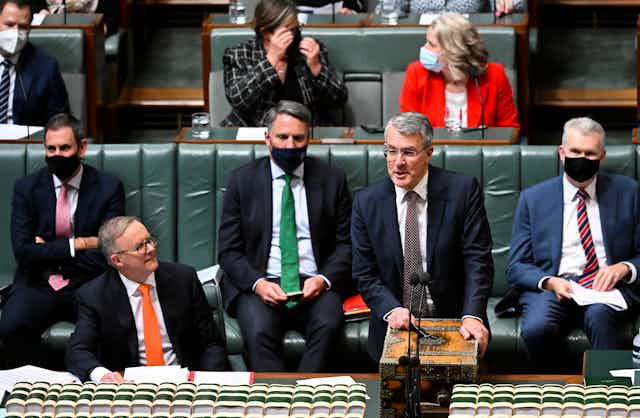The government has introduced its legislation for the National Anti-Corruption Commission, which has received the endorsement of opposition leader Peter Dutton and so is assured of passage through parliament.
But critics are unhappy that its public hearings will be limited to when there are “exceptional circumstances”. Attorney-General Mark Dreyfus in this podcast strongly rejects the argument this is too high a hurdle.
The government has yet to nominate a head of the powerful new body, and Dreyfus says it is open to suggestions. Asked if he has anyone particularly in mind he says, “No I do not. […] We’re going to be trying to find someone who’s eminent, who has a real standing in the community.”
On the question of so-called “grey corruption”, notably misuse of ministerial discretion in grants schemes, Dreyfus stresses it will be completely up to the commission to decide what might justify investigation.
“We’ve included in this bill a broad definition of corrupt conduct. It goes to breach of public trust, abuse of someone’s office as a public official, misuse of information acquired in the person’s capacity as a public official, but leaves open to the commission to find other forms of conduct are corrupt.”
The anti-corruption legislation contains protection for whistleblowers but Dreyfus has yet to unveil an overhaul of the existing more general legislation on whitleblowers.
He says he has “a long-standing commitment to protection of whistleblowers”.
“I brought the Public Interest Disclosure Act 2013 to the parliament […] when I was last attorney-general. I was conscious then that we might not have got the scheme completely right, and provided for a statutory review to take place.” He will look at the recommendations of that review, which reported in 2016, and update it “with a view to strengthening the protection” for whistleblowers.

